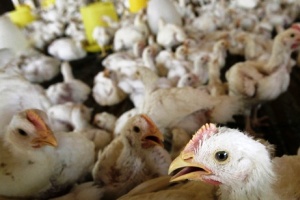Bangladesh: Avian flu still casts shadow over poultry industry

Bangladesh is still feeling the aftershocks from 2007’s HPAI outbreak that closed 50,000 related businesses and put 2.5 million out of a job.
Approximately 2.3 million chickens have been culled as a result of 550 outbreaks since 2007. There were 171 outbreaks in 2011, with 21 so far in 2012. The most deadly year was 2008, with 226 outbreaks, according to the government’s Department of Livestock Services.
Today, the industry is still struggling, and Syed Abu Siddique, president of the Bangladesh Poultry Industries Association has critiqued the government for its inaction: its projected surveillance and compensation program for affected farmers is not doing enough.
“Because of the inaction of the government, the industry is now struggling to survive,” said Syed Abu Siddique.
“Farmers often do not get the compensation, or get it [late] and face hassles to get it, resulting [in them] often selling the sick chicken in the markets, which is spreading the disease… and also threatening the public health.”
Compensation for farmers forced to cull suspected H5N1 infected birds runs from 49 US cents to 2 dollars depending on the age of the bird.
S M Nazrul Islam, the director of government’s Avian Influenza Preparedness and Response Project and a senior official of Department of Livestock Services, responding the Association’s allegations, said, “We are doing strong surveillance, with our full effort to protect the industry, and every farmer gets the compensation if chickens on their farm are detected [with] bird flu.”
Mat Yamage, senior technical coordinator and team leader at the Emergency Centre for Transboundary Animal Diseases of the UN Food and Agriculture Organization (FAO) in Bangladesh said, “Stronger action is needed now to protect Bangladesh’s critical poultry industry.”
Yamage also said that improving public awareness, and bio-security on small farms could help restart the poultry industry in Bangladesh.
“In some big farms, the bio-security is good, but the… [small-scale] farms do not have strong bio-security,” said Yamage. “We recommend closing down shops [that sell chicken] a day in week for hygiene activities.”
Source: IRIN













